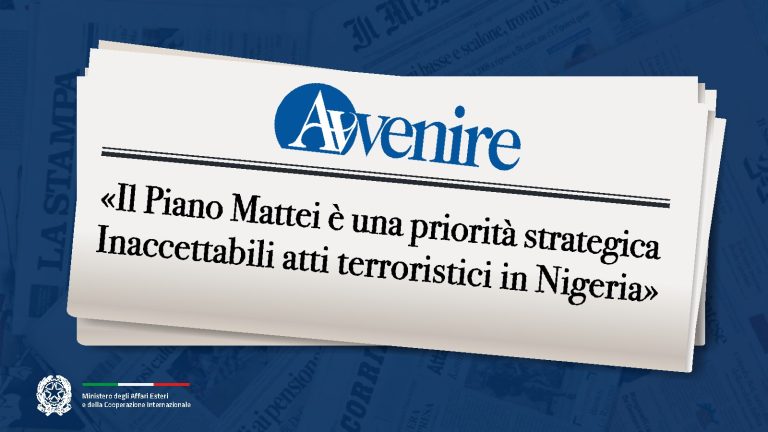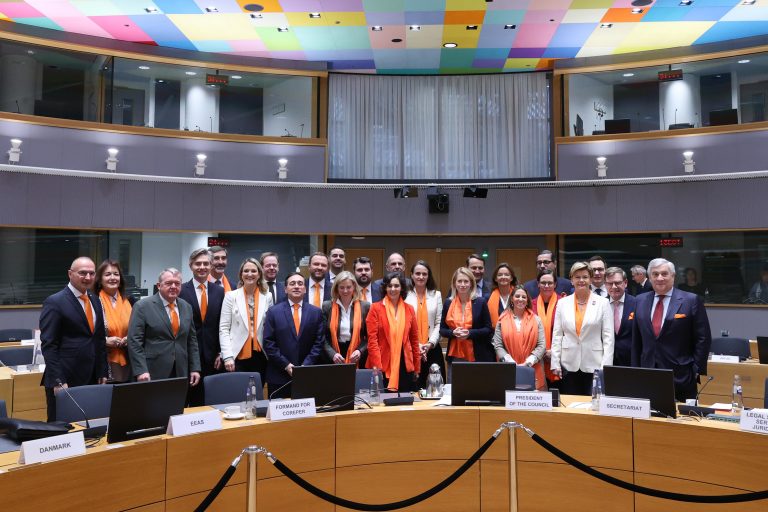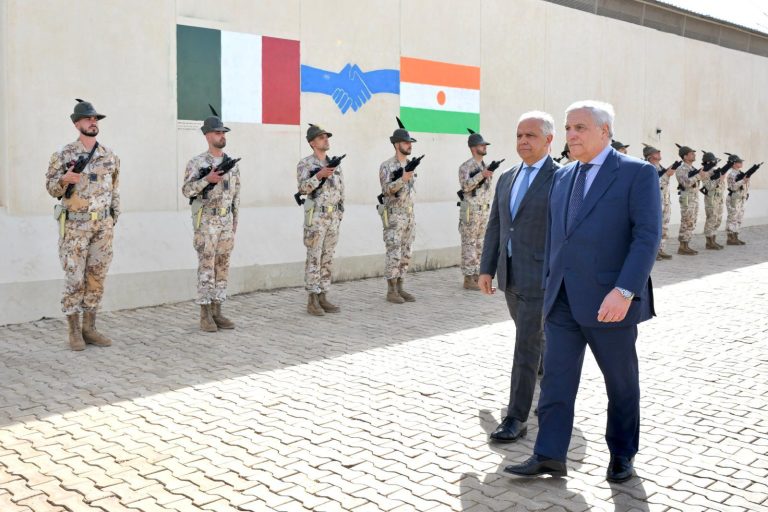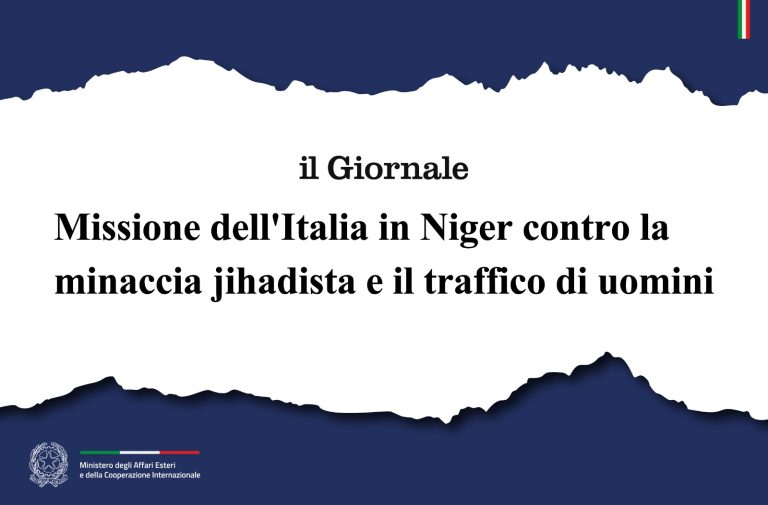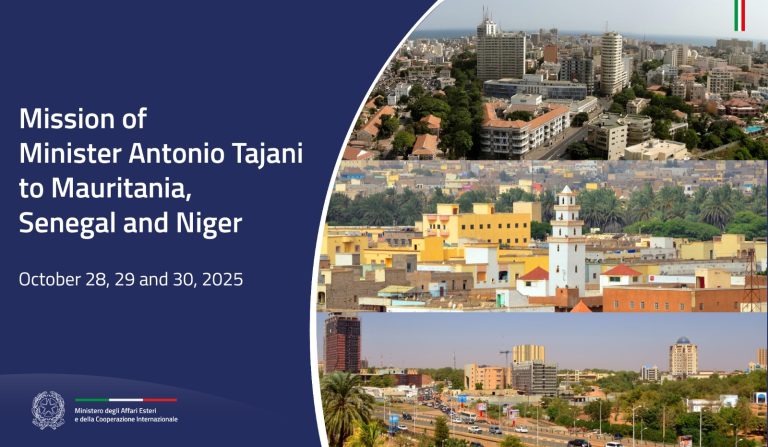“Africa must not become a land of conquest. Today it is unthinkable to imagine a new race for that continent like the one of inauspicious memory of the 19th century. However, in countries such as Sudan, Libya or the Central African Republic, we have long noticed growing foreign influences that are causing a deterioration in the security and stability conditions in areas that are already very fragile. We cannot accept this state of things. I do not believe that the United States is an inexorably fading player, but we certainly have to ask the European Union to get more involved in the continent, not least because it is good to remember that the Union remains the largest donor in Africa”. This is the clear message sent by Italian Foreign Minister Antonio Tajani while in Sudan the fragile truce does not work and people continue to flee and die.
Minister, what happened in Khartoum is just the tip of the iceberg of what is already happening elsewhere in Africa: the war for the return to a second generation of bloc politics. With China and Russia allied in variable geometries and the United States with inexorably fading power. Can we resign ourselves to this situation? Do the African people still deserve this? Must they still have fleeing northwards as their only alternative?
The growing presence of China, which for some time has been one of the main economic players on the Continent, is well known. For some time, Russia has entered the field and it is an actor playing a role based on a political-military strategy. The interests of the two States do not always coincide, but it is certain that they often stand in opposition to those of the West. At the United Nations, we have seen a significant number of African States taking a position of neutrality by abstaining from voting on resolutions condemning the aggression against Ukraine or, in a few but striking cases, voting against these resolutions. A more intense dialogue with those countries is a must, not least because our future depends on it. Creating opportunities for sustainable growth in African countries, promoting investment, and offering young people excellent training programmes, is key not only to help those populations find new development opportunities at home, but also to combat the vicious circle that links unemployment, irregular migration flows, violent extremism, wars and humanitarian crises.
What is Italy doing, while Europe continues to go in random order without a policy other than the one that President Macron’s France first tried to impose and now seems to be abandoning?
The Italian approach has no hidden goals or agendas. Our goal is to create solid and forward-looking partnerships, with the awareness that Africa will become the most populous and the youngest continent in the coming years and will increasingly be at the centre of multiple and complex trends, with undeniable repercussions on Italy and Europe as well. With the Mattei Plan, which will be launched in the autumn during the Italy-Africa Summit, the government intends to relaunch relations with African countries and give Italy a leading role in relations between Africa and Europe, as a bridge between the two continents. Today more than ever we need a strategic vision of our relations with Africa and an inspiring and stimulating action within the EU. Europe is investing in Africa, including with instruments such as the Global Gateway, but it can and must do more. The external dimension of migration can no longer be ignored. We need a new awareness capable of combining the principles of responsibility and solidarity.
National interests, oil and gas in Libya and Algeria, oil and gas in Mozambique, Congo – just to consider only ENI’s facilities. Or the solution of other solvency problems relating to large Italian companies involved in huge construction projects, such as the Great Renaissance Dam in Ethiopia. How do you intend to defend these realities?
Italian excellence in the world is appreciated and sought after, even when it comes to putting in place particularly complex projects such as the Renaissance Dam in Ethiopia, i.e. collaborations in the energy field, which always look at the ecological transition and aim at an egalitarian and mutually beneficial partnership with our partners. The Italian economic system is strong, and foreign trade is our real driver for growth. The government is focusing much on Growth Diplomacy, supporting companies in their exports and defending “Made in Italy” products. We promote missions for growth in all continents and have taken important measures to support our companies. We are convinced that the economic partnership with the African continent must be based not only on trade, but also on the promotion of productive investment and new business opportunities. Among the various actions we are carrying out in Africa, I would like to mention the Luca Attanasio Initiative, inspired by the operational proposals suggested at the time by the late Ambassador, and dedicated to the markets of the sub-Saharan African countries that have the greatest opportunities for development and investment, and where particularly targeted institutional support and assistance for our companies are essential.
The new jihadism fuelled by external agents, militias clearly attributable to States. In short, we seem to be back to the days of the military advisers of the USSR, of the United States, of Che in Congo. What is to be done?
The presence of private military companies in Africa worries us. Due to the jihadist wave in the Sahel, but not only there, several African States have requested or accepted the help of foreign military companies that can be paid in cash or in the form of mining concessions. They are mercenaries who come to the rescue of governments in difficulty in maintaining State security. Serious reflection is needed at the international level to draw up codes of conduct to regulate the phenomenon of private military companies. But, above all, constant preventive action is needed. On the one hand, experiences such as those of the EU civil and military missions to provide assistance to various African States show us how Europe can and must become a point of reference for African partners in difficulty. On the other hand, a new era of African growth must finally be launched to prevent fragile States, already in crisis, from being overwhelmed when they face threats such as the jihadist threat.
There was a time when we relied on international cooperation, but other countries’ aggressiveness showed that aid often ended up in the wrong hands or was even “misunderstood”. Isn’t it time to get out of old concepts and get directly to those in need?
The old concept of development cooperation is no longer enough. We need a new approach, aimed at building shared projects with governments and beneficiary communities. Economic growth is not enough to reduce poverty. It must be inclusive and involve the three dimensions of sustainable development, namely the economic, social and environmental dimensions. The Italian Development Cooperation’s intervention is hinged around these dimensions. Our cooperation policies aim to promote not only development but also peace and stability.

